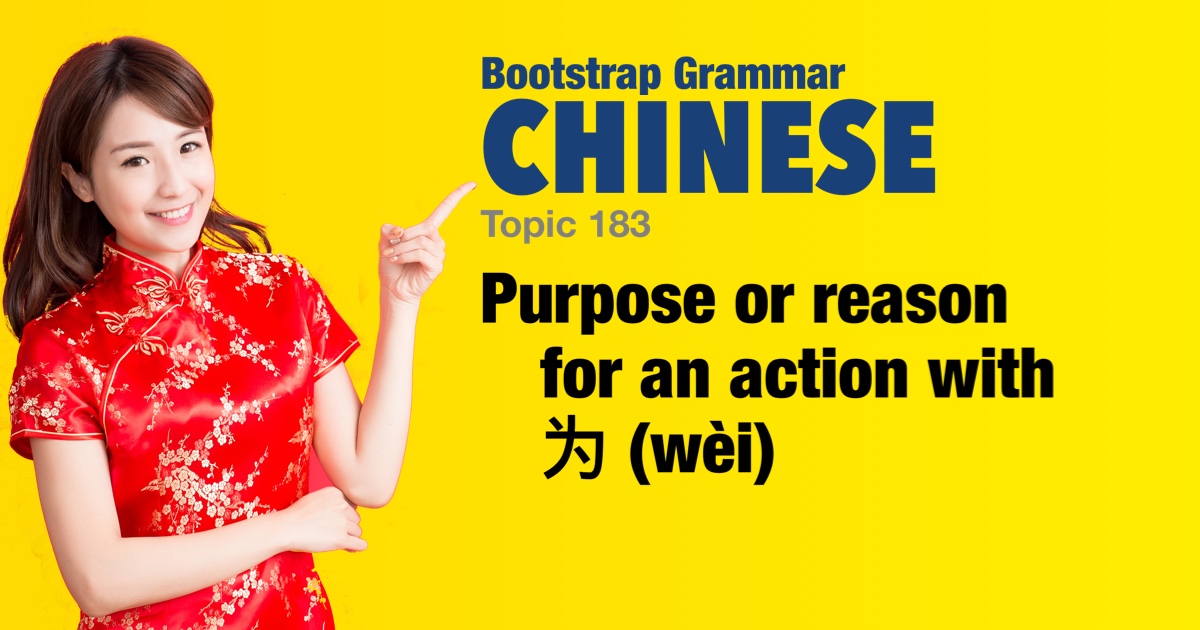Chinese grammar - Purpose or reason for an action with 为 (wèi) |
|||
|
|||
In Chinese, the preposition 为 (wèi) is used to indicate the purpose or reason for an action. It connects the action with its intended purpose. — It is equivalent to 'for' in English where it in dicates purpose or reason. |
| Examples: | |
|
他为考试做准备。
tā wèi kǎoshì zuò zhǔnbèi. He prepares for the exam. |
|
|
她为家庭做饭。
tā wèi jiātíng zuòfàn. She cooks for the family.
|
|
|
我们为比赛训练。
wǒmen wèi bǐsài xùnliàn. We train for the competition.
|
|
|
我昨天为妈妈买了花。
wǒ zuótiān wèi māma mǎi le huā. I bought flowers for my mom yesterday. |
|
|
他为她写了一封信。
tā wèi tā xiě le yì fēng xìn. He wrote a letter for her. |
|
|
她为他的生日做了蛋糕。
tā wèi tā de shēngrì zuò le dàngāo. She made a cake for his birthday. |
|
|
他们为晚餐买了食材。
tāmen wèi wǎncān mǎi le shícái. They bought ingredients for dinner.
|
|
|
他将为孩子们组织活动。
tā jiāng wèi háizimen zǔzhī huódòng. He will organize activities for the children.
|
|
|
他们将为客人准备礼物。
tāmen jiāng wèi kèrén zhǔnbèi lǐwù. They will prepare gifts for the guests. |
|
|
他正在为演讲做准备。
tā zhèngzài wèi yánjiǎng zuò zhǔnbèi. He is currently preparing for the speech.
|
|
|
她正在为孩子们做饭。
tā zhèngzài wèi háizimen zuòfàn. She is currently cooking for the children. |
|
|
我为考试做准备,所以没有时间玩。
wǒ wèi kǎoshì zuò zhǔnbèi,#suóyǐ méiyǒu shíjiān wán. I am preparing for the exam, so I don't have time to play. |
|
|
她为他的生日做了蛋糕,并且买了礼物。
tā wèi tā de shēngrì zuò le dàngāo,#bìngqiě mǎi le lǐwù. She made a cake for his birthday and also bought a gift. |
|
|
他们为晚餐买了食材,然后开始做饭。
tāmen wèi wǎncān mǎi le shícái,#ránhòu kāishǐ zuòfàn. They bought ingredients for dinner and then started cooking. |
|
|
他为他的外套花了五百块钱。
tā wèi tā de wàitào huā le wǔbǎi kuàiqián. He spent 500 yuan for his coat. |
|
 |
|




